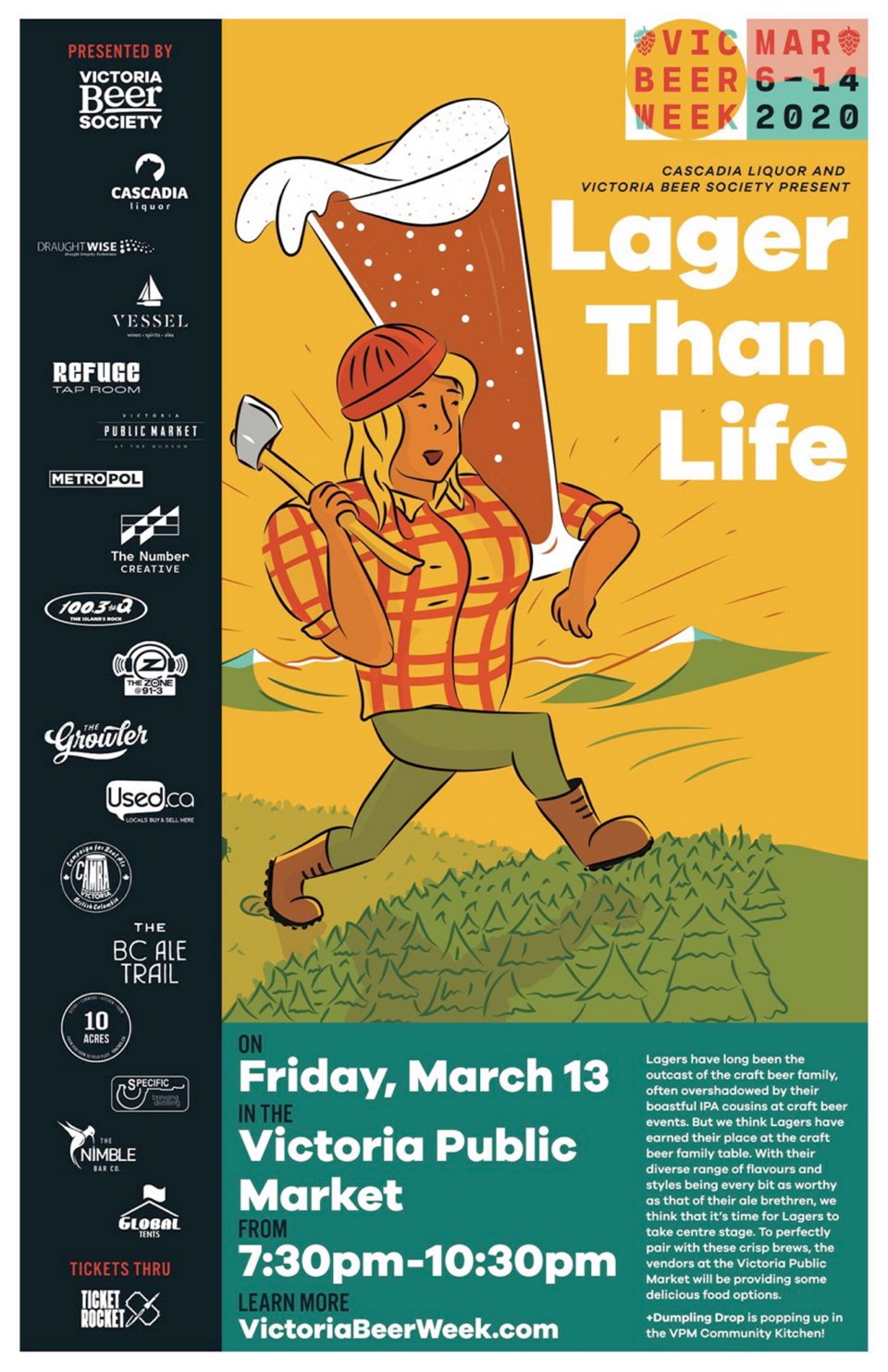First in a series on beer by Joe Wiebe, author of Craft Beer Revolution: The Insider’s Guide to B.C. Breweries.
The world of beer can be divided into two families — lagers and ales — based on the type of yeast brewers use to ferment them. Ale yeasts generally float at the top of unfermented beer and prefer to work at warmer temperatures, while lager yeasts sink to the bottom and like it a bit colder. Flavour-wise, ales are typically fruitier and more full-bodied, while lagers are smooth and clean, with a dry finish. Lagers also take longer to brew than their ale cousins — often weeks longer.
Lagers were discovered and cultivated several hundred years ago by German brewers who found that certain beers did exceptionally well when stored at cold temperatures in ice-filled caves throughout the summer. The German word lager means “to store.” They would release Märzen beers — so-named because they were brewed in März or March — in a big harvest party that later evolved into Oktoberfest. And then a Bohemian brewery in Pilsen refined the style even more in the 1840s, leading to Pilsner lagers becoming the most popular type of beer in the world by the end of the 19th century.
Today, lagers dominate the world, but most people think of them as light, fizzy beer with little flavour — the type of beer to enjoy at the beach or after mowing the lawn on a hot day. Many people associate them with the boring beer their dads drank and, as a result, they tend to disdain them in favour of more exciting craft-beer styles such as IPAs and Belgian sours.
But in today’s craft-beer world, lagers aren’t just for your dad any more. The range of lager styles is diverse: They can be light or dark, malty and sweet or dry and toasty, and they can range in strength from as low as 4% ABV up to 9% or higher. And if you ask brewers what they like to drink at the end of a long day, they will often say lager, and they’ll be quick to point out that they are hard to make well. Apparently, because lagers have such a dry, clean finish, it is harder to hide flaws than it is with ales, so a professional brewer is always especially impressed with a colleague’s well-made lager.
In Germany, the names of lagers are often based on their colour: Helles for light and Dunkel for dark. Pilsners can be both Czech (maltier and “chewier”) or German (drier and perhaps hoppier) and are light in colour. There is also a range of stronger lagers called Bocks. The name comes from the town of Einbeck where the first Bocks were brewed. The Bavarian dialect makes that sound like “ein Bock,” which is German for billy goat, so traditionally, the labels for Bocks in Germany always include a goat. The names also end in “-ator” as reflected in Vancouver Island Brewing’s popular Hermannator Ice Bock. That beer is an unusual style that involves freeze distillation where ice crystals are removed from the beer, raising the alcohol level.
Beer lovers will be able to get their fill of lagers and other brews at this year’s Victoria Beer Week, which runs March 6-14. The nine-day festival showcases B.C. craft breweries in unique event settings with a focus on education and diverse craft beer selection. This year’s event will feature more than 40 B.C. craft breweries at venues throughout the city.
Lagers of all types will be celebrated at a beer-week event called Lager Than Life, which will take place on Friday, March 13, at the Victoria Public Market.
Breweries want to showcase some of their lager brewing chops. The beer list is still being finalized, but at this point, it looks like there will be 16 breweries serving more than 20 beers ranging from Pilsners and Helles lagers to Märzens, Dunkels, Doppelbocks and Baltic Porters, a singularity potent style of dark porter brewed with a lager yeast for a smooth, creamy finish. Alongside the beers, the food vendors at the Victoria Public Market will be serving up tasty bites and, as a special bonus, Dumpling Drop will be serving delicious fried dumplings from the Community Kitchen in the market.
Joe Wiebe is the Beer Director for the Victoria Beer Society.
Lager Than Life is at 7:30 p.m. Friday, March 13, at the Victoria Public Market. For information and tickets to that and other beer-week events, go to victoriabeerweek.com



